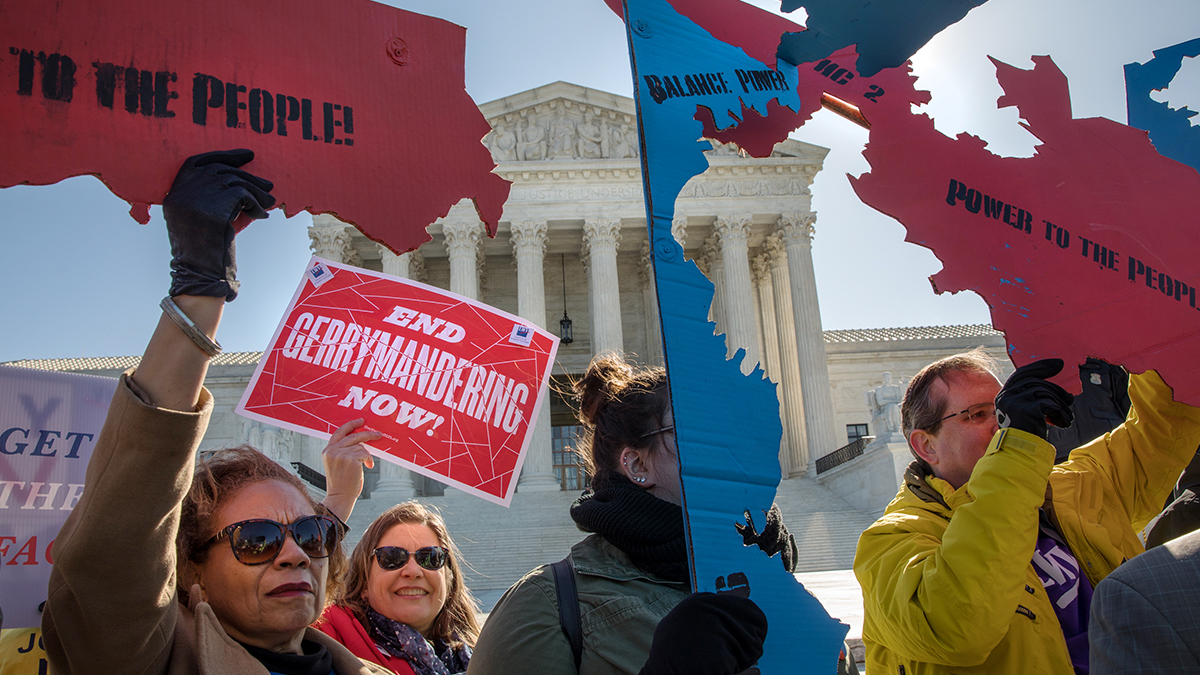What to Know
- The once-a-decade process of drawing up new congressional and state legislative districts is underway in Pennsylvania. It's called redistricting.
- It determines how voters are grouped into the state's 17 congressional districts and 253 state legislators' districts.
- The state Supreme Court is once again stepping in to decide what the new congressional districts will look like because the Republican-majority legislature and Democratic Gov. Tom Wolf failed to come to an agreement on a new map.
Pennsylvania's Democratic-majority Supreme Court took control Wednesday of choosing new congressional districts for the state, a process that deadlocked the governor and Legislature over the past two months.
The five Democratic justices issued an order directing a lower judge to give them a report by Monday that recommends a new map, along with her legal and factual findings that support it.
Commonwealth Court Judge Patricia McCullough, a Republican, will serve as a “special master." Parties in the redistricting case she has been handling who object to her report can do so before the Supreme Court by Feb. 14. Oral arguments will occur Feb. 18.
Get Philly local news, weather forecasts, sports and entertainment stories to your inbox. Sign up for NBC Philadelphia newsletters.
Signature-gathering for petitions to get on the May 17 primary ballot is scheduled to begin Feb. 15 but may be delayed. Both Republicans on the Supreme Court dissented.
Thirteen maps were submitted to McCullough last week for consideration. The maps include those submitted by Republican legislators, Gov. Tom Wolf's administration, concerned citizens and math and science professors at universities across Pennsylvania.
The court fight has erupted because the state legislature, which is controlled by Republicans, and the Democratic governor have failed to reach an agreement on a map.
The stalemate could actually be a good thing for voters, according to some fair elections advocates. It has opened up debate about whether lawmaker-created maps are fair or whether the maps were manipulated to favor politicians, also known as gerrymandering.
The 2022 elections in Pennsylvania feature rare open races for the offices of U.S. senator and governor, which will impact policies statewide. Current U.S. Sen. Pat Toomey is not running for a third term and Wolf is not allowed to run for a third term. Dozens of candidates are running to fill those seats.
Chief Justice Max Baer, a Democrat, said the court was stepping in to move the process more quickly.
“The threat of any appeal period from the Commonwealth Court decision to this court reduces the scant days available for this court to obtain briefs, study this complex and important matter, and render a decision,” Baer wrote, noting the pressures of the state's elections calendar.
Democratic Gov. Tom Wolf has vetoed a proposed map that passed the Republican-majority Legislature on nearly party lines.
Justice Sallie Mundy, a Republican, said she would prefer to let McCullough render a decision and opinion and then expedite an appeal, rather than have the court exercise its jurisdiction at this point.
Decision 2022
The court majority said it was acting because of the impasse between Wolf and the General Assembly, adding that they see “time being of the essence.” McCullough also was directed to give the justices a proposal to revise election deadlines.
Democrats last week asked the Supreme Court to take over the process from McCullough, arguing that its own precedent holds that the Supreme Court should select a new map when the executive and legislative branches are deadlocked, not a lower court judge.
Democrats had argued that it would go against that precedent to allow McCullough to issue an order adopting a particular map that she selects. Rather, they said, the court should follow its 1992 precedent, when it appointed a Commonwealth Court judge as a special master to provide a recommendation to the state Supreme Court.
Comparatively slow population growth over the past decade has cost the state a congressional seat, so the new map must account for a drop in the delegation from 18 to 17.




